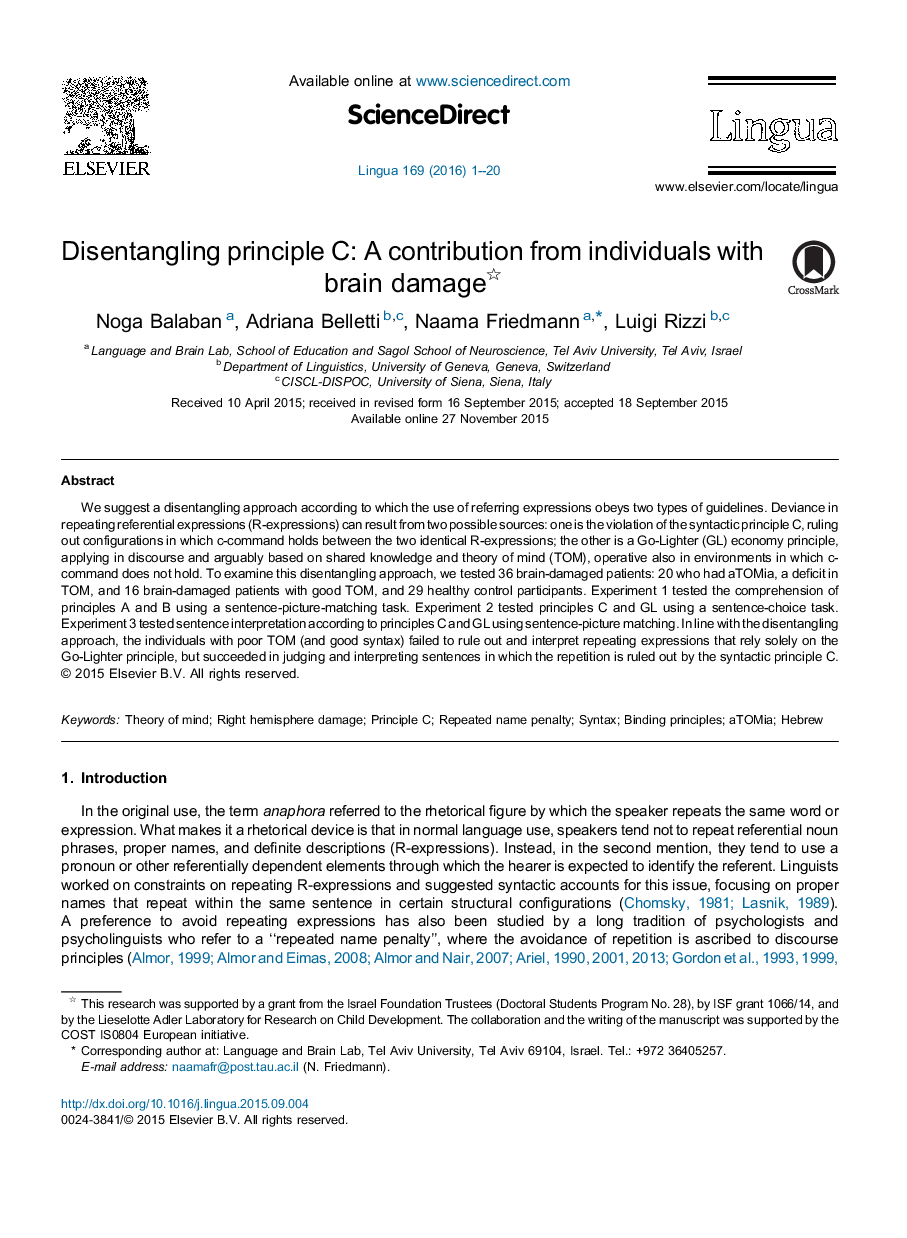| Article ID | Journal | Published Year | Pages | File Type |
|---|---|---|---|---|
| 935238 | Lingua | 2016 | 20 Pages |
•Repeating referential expressions may violate syntactic or discourse conditions.•We disentangled Principle C involving c-command from a Go-lighter discourse principle.•Go-lighter is arguably based on shared knowledge and theory of mind (TOM).•We tested 36 brain damaged patients, 20 of whom had aTOMia (TOM impairment).•The aTOMic patients succeeded on Principle C but failed on Go-Lighter.
We suggest a disentangling approach according to which the use of referring expressions obeys two types of guidelines. Deviance in repeating referential expressions (R-expressions) can result from two possible sources: one is the violation of the syntactic principle C, ruling out configurations in which c-command holds between the two identical R-expressions; the other is a Go-Lighter (GL) economy principle, applying in discourse and arguably based on shared knowledge and theory of mind (TOM), operative also in environments in which c-command does not hold. To examine this disentangling approach, we tested 36 brain-damaged patients: 20 who had aTOMia, a deficit in TOM, and 16 brain-damaged patients with good TOM, and 29 healthy control participants. Experiment 1 tested the comprehension of principles A and B using a sentence-picture-matching task. Experiment 2 tested principles C and GL using a sentence-choice task. Experiment 3 tested sentence interpretation according to principles C and GL using sentence-picture matching. In line with the disentangling approach, the individuals with poor TOM (and good syntax) failed to rule out and interpret repeating expressions that rely solely on the Go-Lighter principle, but succeeded in judging and interpreting sentences in which the repetition is ruled out by the syntactic principle C.
